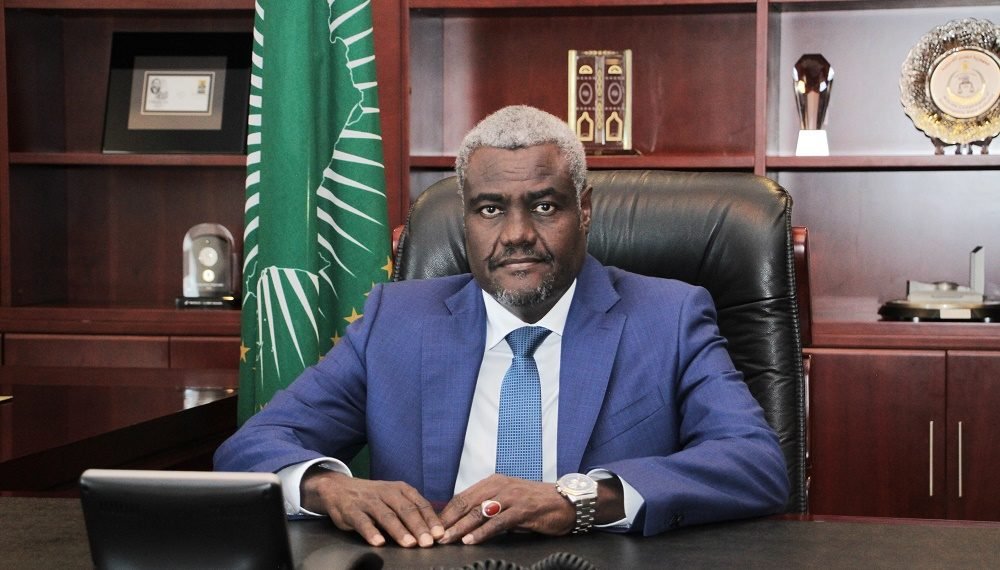Mr. Moussa Faki Mahamat, Chairperson of the African Union Commission has stated that the unity of Africa is based first and foremost on its history. According to him, the history of Africa is imperative for the development of the Continent.
Also. He indicated that Africa’s history is a vehicle for the formation of the African personality and the affirmation of African peoples in the world.
“Africa can only assert itself in multilateralism and partnerships with the rest of the world by affirming…its personality and its identity on a basis of total equality with others”.
Mr. Moussa disclosed this in a statement to mark the occasion of Africa Day today, May 25, 2021. The day also coincide with the Continental Launch of the Entry into Force of the Charter for African Cultural Renaissance
However, the Chairperson of the AU Commission bemoaned the fact that Africa has ignored the role of culture in nation formation. As a result, he has appealed to academics and sociologists from all cultural spaces to make their contribution to building a solid and achievable African consensus.
“Africa has long overlooked the role of culture in the promotion and formation of Nations. I intend, during this mandate, to correct this tendency by taking an interest, more than I have done in the past, in African culture and thought”.
The Chairperson revealed that eminent African personalities will lead various discussions that fit well into this dynamic today to mark the Africa Day. According to him, all the discussions are in line with the theme of the year. The theme for 2021 is ‘Arts, culture and heritage as levers to build the Africa we want’.
He expressed his gratitude to all the speakers and assure them that their intellectual contributions will make a significant impact on Africa’s cultural renaissance.
Charter for African Cultural Renaissance
The AU also launched the entry into force of the Charter for African Cultural Renaissance adopted since 2006 in Khartoum, Sudan. One of the objectives of this Charter is to strengthen the role of culture in the promotion of peace and good governance.
The Chairperson highlighted the role of arts, audiovisual, cinematographic expressions and other creative industries in African integration. He added that integration is a factor of peace, of understanding and prevention of conflicts as well as of growth.
Organization of African Unity (OAU)
The Organization of African Unity (OAU) was formed in Addis Ababa on May 25, 1963 by twenty African Heads of State.
The OAU set itself the ambition of the total independence of Africa on the political and economic level and the achievement of its unity. Fifty-eight years later, the African Union, which took over from the OAU, pursues this ambition with varying degrees of success. It does this concretely on the ground, but it also does it on the basis of principles.
Some of these principles include African renaissance, the spirit of Pan-Africanism, cultural identity and shared values. They are dear to the founding fathers and defined in the Constitutive Act of the AU, Agenda 2063 of the AU and other continental instruments. Mahamat Mahamat
“These principles and values have an important role to play in building the Africa we want. Africans must draw the keys to their development from the depths of their cultural and artistic heritage”.
READ ASLO: Ghana became UK’s 75th largest trading partner at year-end 2020



















